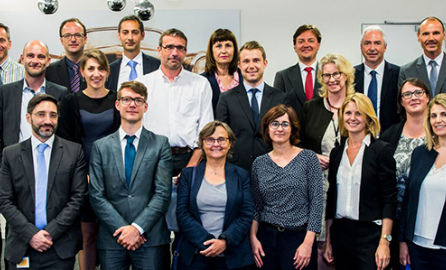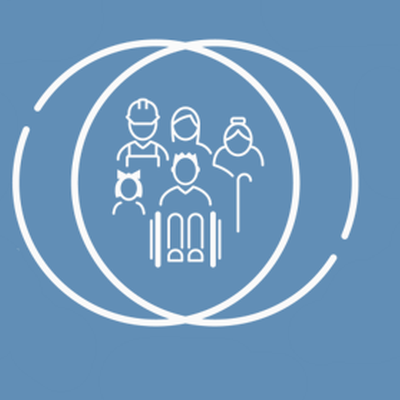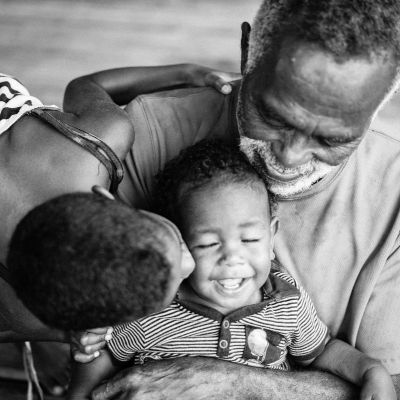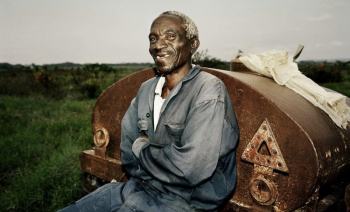Most countries can finance some kind of social safety net through domestic resources, according to Belgian deputy prime minister and minister for development Alexander De Croo. But he says developing nations often lack the technical knowledge to build sustainable programmes for things like health care, social work and pensions. That’s where European policy experts come in.
“Exchange of knowledge and expertise contributes, I believe, more than financial grants to sustainability in social protection systems,” De Croo told a conference in Brussels last month.
The event was held to present the results of the Socieux programme and officially launch its successor, Socieux+. Between April 2013 and December 2016, Socieux sent 73 EU experts (about three-quarters of whom were drawn from the public sector) to help design, manage and monitor social protection systems in 24 countries. By way of illustration, the 37 short-term projects included helping introduce mandatory health insurance in Azerbaijan, analysing the viability of pensions in West Africa, and mapping basic social service centres in Ivory Coast.
With the launch of Socieux+, which will enlarge the scope of support to employment and labour issues, the team managing the project for a consortium of European public agencies took the chance to reflect on what they’ve learnt so far.
Socieux+ director Frederic Sansier said the participation of just 15 EU member countries until now meant “we are not mobilising the whole diversity of expertise that could respond to the needs of our partner countries.”
In the following video, Frederic Sansier outlines the lessons learned from the first phase of Socieux (0:10), the use of experts from the public and private spheres (2:05) and how Socieux ensures knowledge transfer to local experts (3:20):
The programme is most useful when it engages European experts who have dealt with similar problems in the past.
Aysel Ibayeva, from Azerbaijan’s State Agency for Mandatory Health Insurance, said the most important part of Socieux’s role in helping to modernise her country’s health care system was providing the chance to learn from the experience of Estonia and Lithuania.
“It was very interesting for us because they had already passed this transition from the Soviet Semashko model,” Ibayeva said.
Sansier said one trip by a delegation of experts often inspires others, while the demand-driven approach means that making developing countries aware of the programme remains one of organisers’ biggest challenges.
“We thought that there were lots of applications well in advance of us,” said Héctor Salgado, director general of the Social Security Institute of the State of Guanajuato (ISSEG) in Mexico, which couldn’t afford to bring in private consultants. In fact, their pessimism was misplaced and Socieux facilitated the visit of two Spanish experts whom Salgdado said were “crucial” to incorporating recent social security reforms.
In the following interview Hector Salgado outlines the support Mexico received from Socieux to reform its pension system:
Another strength of Socieux, according to Salgado, was its impartiality – allowing for policy to be better separated from political whims. A French expert in Togo agreed that, “As a short-term expert you come in a dynamic where you are neutral and impartial and you are able to create a safe environment, to create new dynamics.”
The benefits are shared too. “It’s a human experience, it’s a cultural exchange,” said François Sentis, another French consultant who worked on social services in Ivory Coast. “For us [in Europe], it’s also a question of how today our own models can be questioned. Today in France when it comes to questions of funding, the resources are not the same as during the three boom decades after World War II … From that point of view we gain just as much as our partners. This work with them allows us to test measures, which we can use to improve our own social protection models.”
François Sentis worked closely with Amara Coulibaly, Director General of Social Action in Ivory Coast’s Ministry of State, Ministry of Employment, Social Affairs and Vocational Training. In the following interview they explain how the exchange worked: Skip to 0:10 for Amara Coulibaly’s overview; 1:05 for the advantage of working with public sector experts; 1:48 for François Sentis’s take on the experience; and 3:30 for the logistics of the work.
Eva Theisz, director of international affairs at the Swedish Public Employment Service, who is also keen to participate in Socieux+, said there is also a very “selfish” reason for European agencies to send their staff abroad.
“You will do your core, everyday business even better if you have an international influence.”
In the following video, Eva Theisz discusses the appeal of working with Socieux+ (0:08); the barriers to this kind of work (1:47); how staff benefit from participating (2:26); and the next steps for Sweden’s public employment service and Socieux+ (2:58).







Log in with your EU Login account to post or comment on the platform.